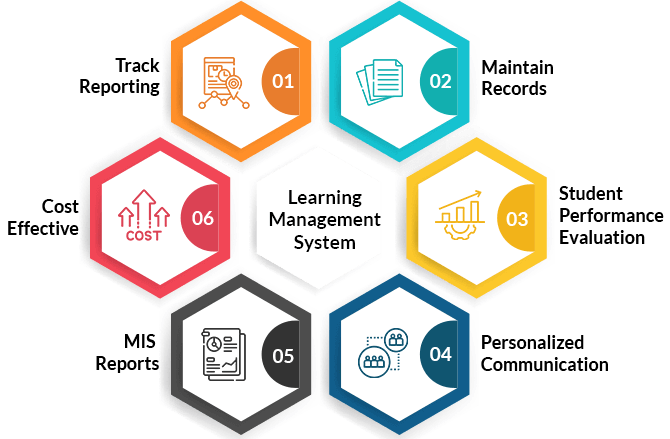Canvas Singapore: A Modern Platform for Virtual Learning Needs
Canvas Singapore: A Modern Platform for Virtual Learning Needs
Blog Article
The Ultimate Guide to Selecting the Right Discovering Administration System
Selecting an ideal Learning Administration System (LMS) is a pivotal decision that can dramatically impact instructional efficiency and total business goals. The subtleties of these considerations increase important inquiries that merit expedition, particularly as the landscape of electronic learning proceeds to evolve.
Understanding Understanding Management Equipment
In the context of modern education and learning and training, a Learning Administration System (LMS) functions as an essential tool for providing, monitoring, and handling educational content. An LMS assists in the company of educational sources, making it possible for institutions and companies to develop a centralized hub for discovering products. This system supports different discovering methods, including on the internet training courses, combined learning, and standard class setups.
LMS platforms are developed to improve the understanding experience by providing a structured environment where learners can access material at their comfort. They often include features such as evaluations, development monitoring, and coverage devices, which aid instructors check student performance and engagement. Additionally, LMSs can be customized to meet the certain requirements of various students and organizations, enabling for customized academic experiences.
The combination of an LMS into academic settings also promotes collaboration among students and teachers, cultivating a feeling of neighborhood with discussion forums and group projects. As companies significantly identify the value of constant discovering and advancement, the function of LMSs in helping with effective training solutions remains to expand, placing them as vital possessions in the educational landscape.
Key Attributes to Think About
When choosing a Knowing Management System (LMS), several vital functions call for cautious consideration to make certain the system aligns with educational purposes. User-friendliness is necessary; a straightforward user interface assists in ease of navigating for both learners and managers.

Assimilation with existing tools is an additional significant facet; the LMS must flawlessly get in touch with devices like CRM systems, video clip conferencing systems, and content databases. canvas singapore. Mobile compatibility is progressively important, as students frequently like accessibility to resources on-the-go
Furthermore, personalization options enable establishments to tailor the LMS to their details branding and pedagogical needs. Lastly, consider the platform's scalability, ensuring it can accommodate future growth and modifications in customer demand. Focusing on these crucial functions will aid in selecting an LMS that effectively improves the learning experience and satisfies institutional objectives.
Prices Versions and Budgeting
Budgeting for a Discovering Administration System (LMS) needs a complete understanding of different rates designs to guarantee a sustainable investment. Organizations should examine their particular demands and long-lasting goals while taking into consideration the economic ramifications of each LMS alternative.

Along with the base pricing, organizations must likewise take into consideration possible added costs such as execution, upkeep, and support solutions. It is crucial to examine the total cost of possession over the LMS's lifecycle, including possible upgrades or additional functions that might be necessary as the organization expands. By very carefully analyzing these prices versions and associated costs, organizations can make educated choices that align with their monetary constraints and educational goals.
Evaluating Individual Experience
Assessing the efficiency of a Knowing Management System (LMS) goes beyond monetary considerations; user experience plays an essential duty in the overall success of the system. A well-designed interface can dramatically improve involvement and retention, making it vital to examine exactly how user-friendly the system is for both managers and learners.
When evaluating customer experience, consider navigational ease, accessibility attributes, and the responsiveness of the system across numerous tools. An LMS ought to offer a smooth experience, permitting individuals to promptly find sources, track development, and engage with material without unneeded rubbing.
Additionally, collect comments from actual users to gauge satisfaction degrees and identify potential discomfort points. Emphasis groups or studies can use valuable insights into how learners connect with the system and any type of challenges they encounter.
It's also important to check out the level of modification available within the LMS. An adaptable platform that permits companies to customize the interface and features to their details demands can substantially improve individual interaction. Eventually, a favorable individual experience fosters a learning atmosphere that urges participation and helps with understanding retention, making it a crucial variable in the choice of canvas sg an LMS.
Implementation and Support Alternatives
Efficiently rolling out a Learning Monitoring System (LMS) requires cautious factor to consider of both execution strategies and continuous support choices. Organizations needs to evaluate whether they will take care of the execution in-house or work together with the LMS supplier.
Ongoing support is equally crucial to make sure the LMS continues to be reliable and straightforward - canvas singapore. Organizations should assess the kinds of assistance provided by the vendor, consisting of technical support, user training, and regular updates. A robust assistance system can help fix concerns promptly, consequently improving user fulfillment and involvement
Additionally, consider the schedule of sources such as user handbooks, Frequently asked questions, and on-line forums. These can equip users to repair their very own problems and promote a feeling of neighborhood. Inevitably, the best implementation and assistance options will certainly not only help with a smoother shift to the LMS yet additionally add to its long-term success within the company.
Final Thought
To conclude, choosing a proper Understanding Monitoring System (LMS) necessitates cautious factor to consider of numerous important factors, consisting of essential functions, rates versions, individual experience, and execution techniques. An appropriate LMS not only boosts educational outcomes however additionally cultivates collaboration amongst users and incorporates seamlessly with existing devices. canvas singapore. Inevitably, a thorough evaluation of these components will support organizations in attaining their instructional objectives and making certain a successful discovering atmosphere for all stakeholders involved
Report this page